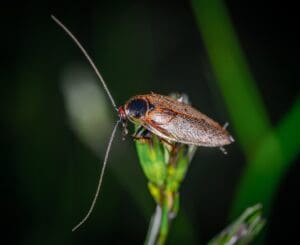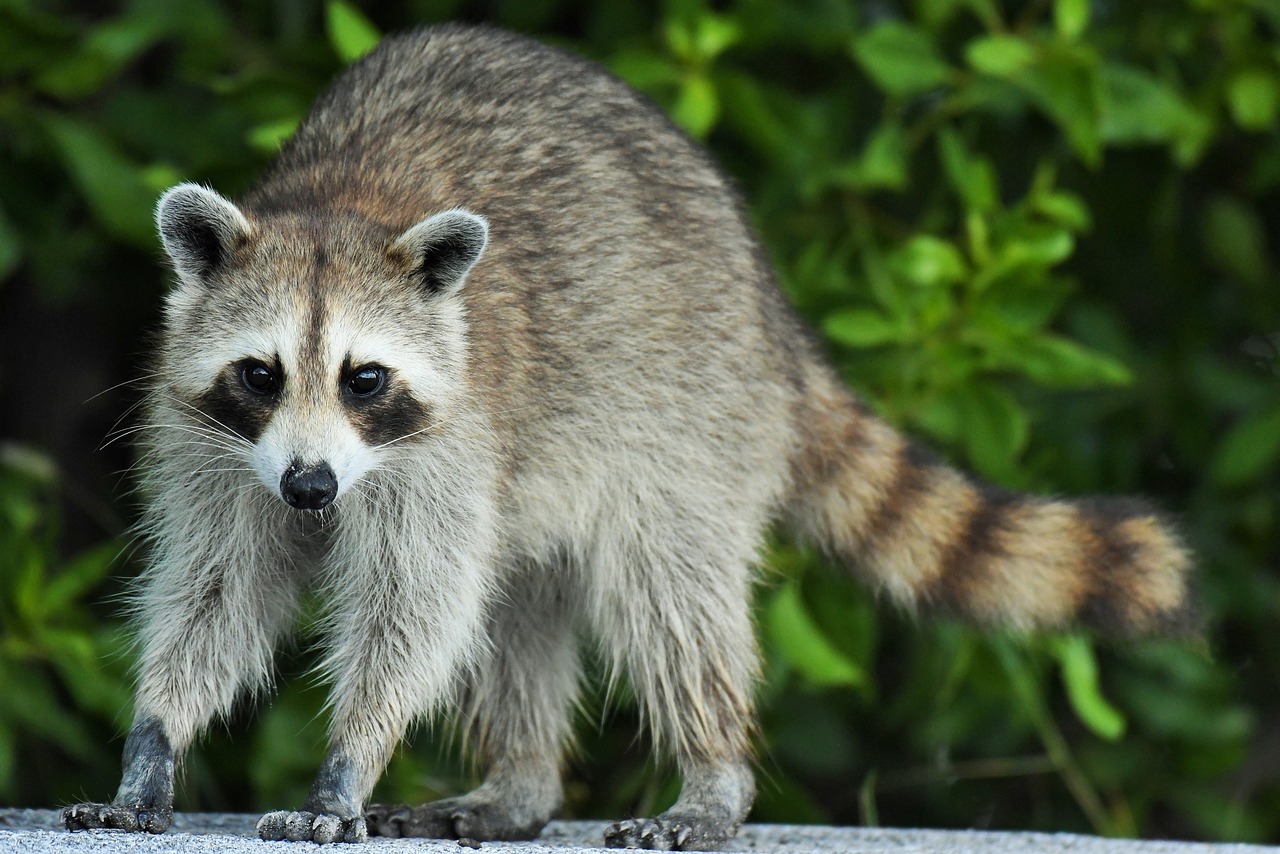Raccoons may look like cute little masked critters however, they are aggressive and can wreak havoc on your home.
Raccoons are tough little animals that can quickly destroy the outside of your home, deck and garage and will stop at nothing to get inside. New Jersey’s climate means that raccoons are active year-round and it’s important you put the right steps in place to prevent the tiny bandits from getting into your home, causing damage and even spreading disease.
With this in mind, we’ve put together a guide designed to help you identify and prevent these trouble-makers from entering your home.
Identifying Raccoons
Raccoons are stout little creatures with short legs and are usually gray with white and black markings. The most common way to identify them is by their mask-like black fur that bands under their eyes and their striped, bushy tails. Raccoons also have small, yet strong paws, which help them dig through the trash and climb walls and fences. The critters mostly build their dens in barns, abandoned burrows, rock crevices, empty buildings and haystacks but they are also quick to make their way into homes where they take up lodging in crawl spaces, chimneys and porches. They eat both plants and meat which means they aren’t too picky about their food and any source of food will draw their attention. From nuts and berries to frogs, insects and even rabbits, raccoons are typical omnivores. It’s quite rare to spot raccoons in the daytime as they are nocturnal and tend to go on the hunt in the evenings. This is why it's difficult to catch them in the act. But they aren’t as slick as you may think. They leave behind tracks, markings, damage and droppings when they break and enter your abode. They aren’t graceful creatures and will tip over a variety of things along their way including trash cans, pet food and gardens. You may also hear them rummaging through things at night while causing chaos, so they are quick to give themselves away. But what’s important to remember is that they are dangerous. These pests carry disease and have strong claws which is why they should be dealt and removed from your property as quickly as possible. The Dangers of Raccoons
As stated previously, raccoons can cause a lot of damage and carry diseases. One of the diseases raccoons are known for carrying is rabies. Many believe that spotting a raccoon in the daytime is an indicator of rabies, however, there could be a variety of reasons a raccoon is out in the daytime. There are more prominent and obvious indicators of rabies in raccoons and these include difficulty walking, confusion, leg paralysis, loud and unusual noises, intense aggression, and sometimes watery eyes and foaming of the mouth. Although raccoons are one of the most common animals to carry the disease of rabies, it’s not the most common disease they carry. Canine distemper is the number one disease carried by raccoons. The illness is similar to rabies in a lot of ways and is characterized by conjunctivitis and a runny nose. Other diseases that raccoons are known to carry include pseudorabies, leptospirosis and parvoviral enteritis. Disease aside, raccoons are also carriers of parasites including raccoon ringworm, ticks and fleas. All of which have the ability to spread a variety of diseases themselves. This is why it is vital that you take the right steps to remove these pesky pests from your home as soon and as quickly as possible. Raccoon Pest Control Tips
The best way to deal with raccoons is to hinder their arrival in the first place. Here are some tips for effectively preventing raccoon intruders. Remove possible pathways
This is the most important step when keeping raccoons outside of your home. Make sure to seal any holes in your home, from your roof and outer walls to your garage and shed. Take a look at all your vents and make sure they are all fully covered. Raccoons also love chimneys so make sure to seal your chimney with a cap or spark arrester - but make sure to check for any possible intruders when doing so, you don’t want to seal them in there! Raccoons are especially fond of open areas under porches, sheds and decks so close these areas off using galvanized hardware mesh. Make sure the mesh is at least 6 inches deep and is extended outward by 12 feet so that the critters aren’t able to dig their way beneath. Remove food sources
When entering a home, raccoons will be looking for a safe place to construct a den as well as a consistent food source. Once this food source is identified, raccoons will return and begin bringing along more friends. If you want to raccoon-proof your home, don’t leave food lying around. Also make sure that all of your garbage cans, pet food and compost containers are sealed tightly. Always clean up fallen food and lock any possible outdoor openings overnight and always cover up chicken coops and fishponds. You can also install an electrified fence around certain areas to make them unclimbable while simple fences can be placed around soil to stop raccoons from searching for insects and possible food sources. Remove den sites
Once food sources have been removed, it’s time to get rid of any potential den sites. Begin by cleaning up your backyard. You can do this by removing any debris piles from your yard and trim any overgrown greenery and shrubbery in the vicinity. Scare them off
Raccoons can be very skittish so they will usually run away as soon as they feel intimidated or startled. This is usually enough to keep them away for a few days, if they ever get the nerve to come back at all. You can scare them off by hitting a metal pan with a spoon or blaring the radio. If you make enough noise - they will leave. Contact an expert
Raccoons may be cute but they are real pests and you should stay away from them as much as possible. As stated previously, the masked intruders carry parasites and diseases and can quickly become aggressive. It’s important to note that you should never set your own raccoon trap as they may end up harming an unintended target such as a pet. WIth this in mind, if you are having issues with raccoons in your home, office or neighborhood, it’s best to call an expert immediately. As adorable as raccoons appear, they are not fun to have in your home or office space. If you have one or more of these pesky critters on your property, contact Twin-Boro today.


